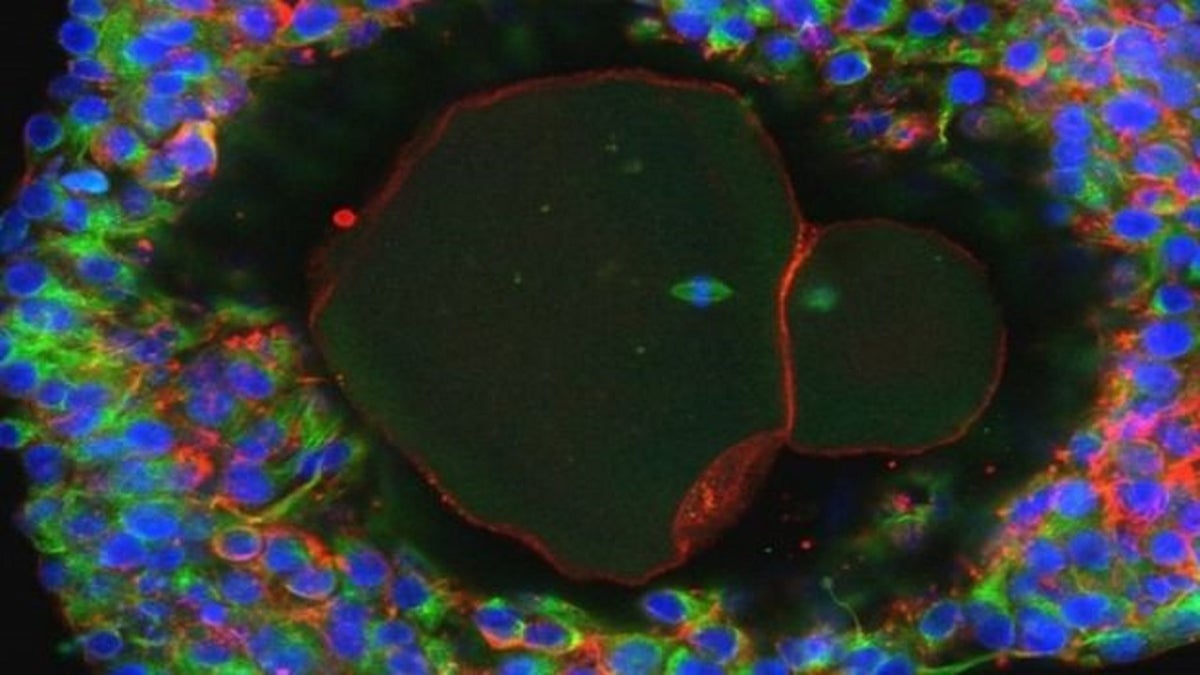For the first time, human eggs have been grown in a laboratory -- and the development could aid in the fertility of children undergoing cancer treatment, say researchers at the University of Edinburgh in Scotland.
Because chemotherapy and radiotherapy can make one sterile, women can freeze their eggs before treatment, the BBC reported. But this is not possible for girls with childhood cancers.
Females are born with immature eggs in their ovaries that can fully develop only after puberty.
The other option for young females is to freeze ovarian tissue before treatment. The tissue is then put back during adulthood if the patient wants to bear children.
But making eggs in the laboratory is considered a safer option.

A human egg grown and developed by scientists at the University of Edinburgh. Doctor David Albertini generated the image, and Professor Evelyn Telfer led the research. (University of Edinburgh)
After decades of research, scientists can now grow eggs to maturity outside of the ovary, the report said.
“This preliminary work offers hope for patients,” Stuart Lavery, a consultant gynecologist at Hammersmith Hospital, told the BBC.
The next step is to fertilize one of the lab-made eggs to create an embryo for further research, but researchers still need to obtain a license or partner with a facility that does, the report said.
